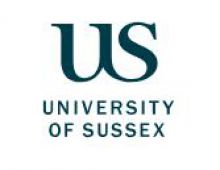This is a tantalising book for those who believe that if only journalists weren’t so slipshod with the facts, then all would be right with the world. It describes and analyses the growing world of the fact-checker – a breed of ersatz journalist that first saw the light of day in the US but has now spread across the globe.
However, the fundamental problem with the notion of fact-checking, and the fundamental problem with this book, is that it is based on the assumption that “objectivity” is at the heart of the journalistic mission. Certainly in UK journalism schools, and increasingly in UK newsrooms, there is a growing questioning of objectivity as the central tenet of journalism. The belief that there is an absolute truth waiting, like ripe fruit, to be picked by the vigilant journalist, is now being challenged and rejected. The implication behind much of this book is that as long as the journalist and/or his or her fact-checker do their jobs and get the “facts right”, then “the truth” will be revealed and all will be well – up to a point, Lord Copper, as the hero of Auberon Waugh’s classic tale of journalism, Scoop, was wont to say.
Take the recent European Union referendum campaign in the UK, for example, and the slogan on the side of the pro-Leave campaign bus that read “We send the EU £350 million a week: let’s fund our NHS instead” – fact-check that one. On the one hand, it is clearly false; Britain does not send a cheque for £350 million to the EU every week, and that’s because this figure doesn’t take into account the rebate that the UK receives or EU grants to British higher education and other worthy causes. The actual amount our membership costs is probably half that sum. On the other hand, £350 million is the amount that Britain, in theory, owes the EU in terms of its annual subscription, before rebates and grants are taken into account. Both arguments pass the fact-check test, so how helpful is fact-checking in this kind of case?
To be fair, Lucas Graves is aware that a too-obsessive attention to fact-checking can lead to a “He said, she said” style of reporting, which is arid and can be misleading. This is precisely what the BBC did during our own dear referendum campaign, when it, for example, gave equal time to 1,280 business leaders who said that leaving the EU would be a disaster, “balanced” by Sir James Dyson (he who relocated his factory to Malaysia), who told us of the golden future that would follow a Leave vote.
Ironically, when challenged on BBC Radio 4 about this and other “phoney balance” issues, the BBC’s chief political adviser admitted that while many of the claims broadcast during the campaign were false, had listeners referred to the BBC’s own “Reality Check” web page, they would have seen these claims contested. So that’s OK, then. Or is it? The problem with fact-checking is that not only does it suggest that the absolute truth is always obtainable, it also assuages the consciences of troubled journalists.
Ivor Gaber is professor of journalism at the University of Sussex and author of “Bending over Backwards: The BBC and the Brexit Campaign” in EU Referendum Analysis 2016: Media, Voters and the Campaign, published by the Centre for the Study of Journalism, Culture and Community, University of Bournemouth.
Deciding What’s True: The Rise of Political Fact-Checking in American Journalism
By Lucas Graves
Columbia University Press, 336pp, £67.00 and £22.00
ISBN 9780231175067, 5074 and 9780231542227 (e-book)
Published 6 September 2016
POSTSCRIPT:
Print headline: Veracity is not the whole story
Register to continue
Why register?
- Registration is free and only takes a moment
- Once registered, you can read 3 articles a month
- Sign up for our newsletter
Subscribe
Or subscribe for unlimited access to:
- Unlimited access to news, views, insights & reviews
- Digital editions
- Digital access to THE’s university and college rankings analysis
Already registered or a current subscriber?


